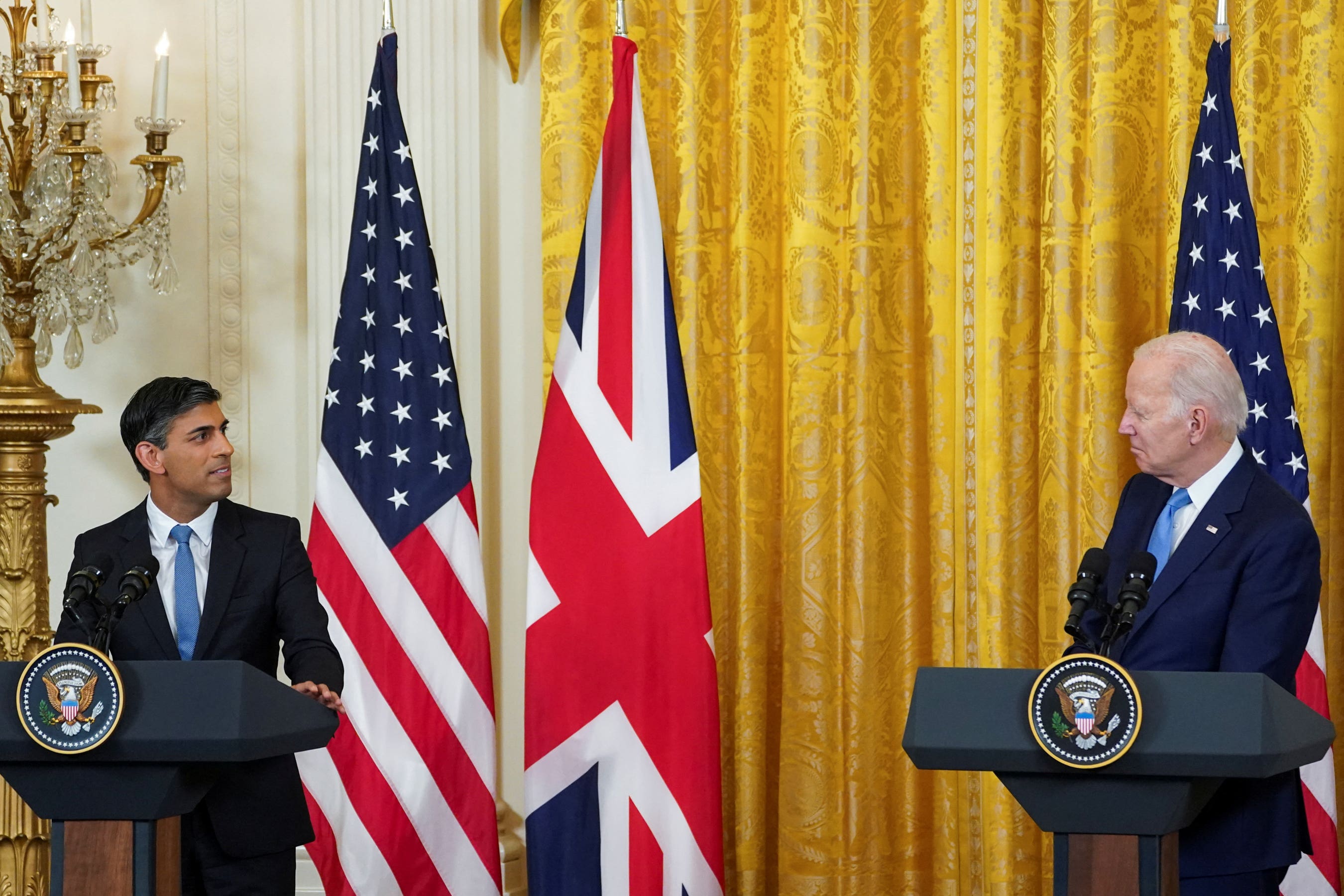UK formally agrees to join major Indo-Pacific trade bloc, marking largest post-Brexit deal
Kemi Badenoch signs CPTPP accession protocol in New Zealand, in move set to cut tariffs for UK exporters

The UK has formally agreed to become the first European country to join a major Indo-Pacific trade bloc, in what marks Britain’s biggest trade deal since Brexit – despite forecasts placing its value at just £1.8bn a year.
The government’s business and trade secretary Kemi Badenoch signed the accession protocol to the Comprehensive and Progressive Agreement for Trans-Pacific Partnership (CPTPP) in New Zealand on Sunday, bringing the bloc’s combined GDP to £12 trillion – 15 per cent of the global share.
Her signature gives formal confirmation of the agreement reached in March following two years of negotiations, and officials from Britain and the bloc’s 11 other members will now begin work to ratify the deal, which will require parliamentary scrutiny and legislation in the UK to bring it into force.
While most of the details were agreed earlier this year, the terms and conditions of the UK’s membership will be published on Sunday – including the commitments the UK is making to other nations on market access.
Putting pen to paper in Auckland alongside ministers from CPTPP nations, Ms Badenoch said: “I’m delighted to be here in New Zealand to sign a deal that will be a big boost for British businesses and deliver billions of pounds in additional trade, as well as open up huge opportunities and unparalleled access to a market of over 500 million people.
“We are using our status as an independent trading nation to join an exciting, growing, forward-looking trade bloc, which will help grow the UK economy and build on the hundreds of thousands of jobs CPTPP-owned businesses already support up and down the country.”
To coincide with the signing, the government released figures showing that CPTPP-headquartered businesses employed one in every 100 UK workers in 2019, amounting to more than 400,000 jobs across the country.
Membership of the trade group – established in 2018 and including Australia, Brunei, Canada, Chile, Japan, Malaysia, Mexico, New Zealand, Peru, Singapore and Vietnam – is expected to bolster that investment relationship.

While Britain already has trade agreements with all CPTPP members apart from Malaysia and Brunei, officials said membership – expected to come into force in the second half of 2024 – will deepen existing arrangements, with 99 per cent of current UK goods exported to the bloc eligible for zero tariffs.
Dairy producers will gain export opportunities to Canada, Chile, Japan and Mexico, while beef, pork and poultry producers will get better access to Mexico’s market, according to officials.
But critics say the impact will be limited, with official estimates suggesting it will add just £1.8bn a year to the economy after 10 years – representing less than one per cent of Britain’s GDP.
The deal marks a continuation of the post-Brexit policy “tilt” towards the Indo-Pacific, which is expected to be home to around half the world’s middle-class consumers by 2035, and comes after any remaining hopes of a US trade deal were dashed during Rishi Sunak’s visit to Washington last month.
But with Mr Sunak’s Conservative Party trailing Labour in the polls, it is unclear whether the next government will focus as much on the Indo-Pacific as it does on mending frayed ties with the European Union.
Speaking to hundreds of business leaders last month, Labour’s shadow foreign secretary David Lammy accused ministers of being “dishonest” by claiming CPTPP membership would make up for lost trade with the EU.
Vowing to “[turn] the page on the era of acrimony” with the EU and restart a “structured dialogue” with the UK’s biggest trading partner, Mr Lammy said he would seek to “improve our trade deal” with the EU, without rejoining the bloc, single market or customs union.

Some officials, however, have heralded the CPTPP as an alternative to the beleaguered World Trade Organisation, and despite the relatively modest estimated gains, the move was welcomed by business figures on Sunday.
HSBC chief executive Ian Stuart said: “The UK’s formal accession to CPTPP marks a significant milestone for UK trade, enabling ambitious British businesses to connect with the world’s most exciting growth markets for start-ups, innovation and technology.”
Some of the everyday items from CPTPP nations that will become cheaper for UK consumers thanks to the deal include Australian Ugg boots, kiwis from New Zealand, blueberries from Chile and Canadian maple syrup, according to the Institute of Export and International Trade.
Its director general Marco Forgione said: “From whisky to confectionery to cars to jewellery and clothing, the removal of tariffs will make our finest British products more readily available to consumers in the Indo-Pacific bloc.
“This agreement has the additional benefit of strengthening the value chains and supply chains within the bloc.
“Since the UK announced its intention to join CPTPP, many other countries are now looking to join. Which means the potential market access and benefits will continue to significantly increase in the coming years.”
Additional reporting by PA
Join our commenting forum
Join thought-provoking conversations, follow other Independent readers and see their replies
Comments



Bookmark popover
Removed from bookmarks